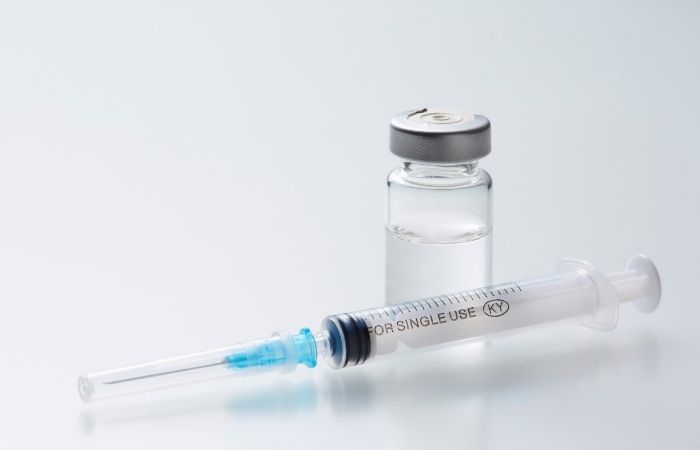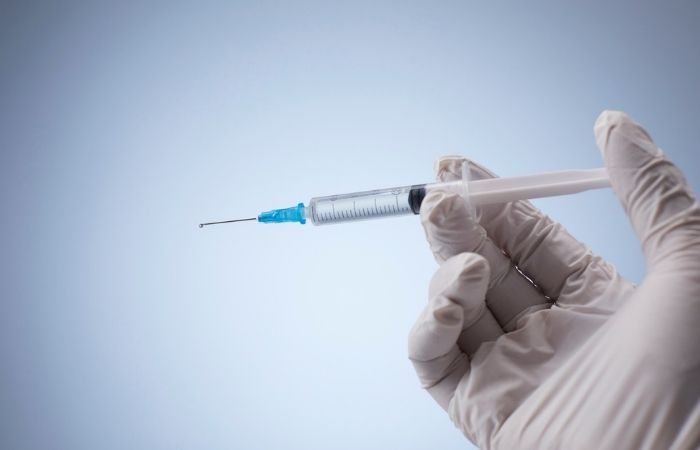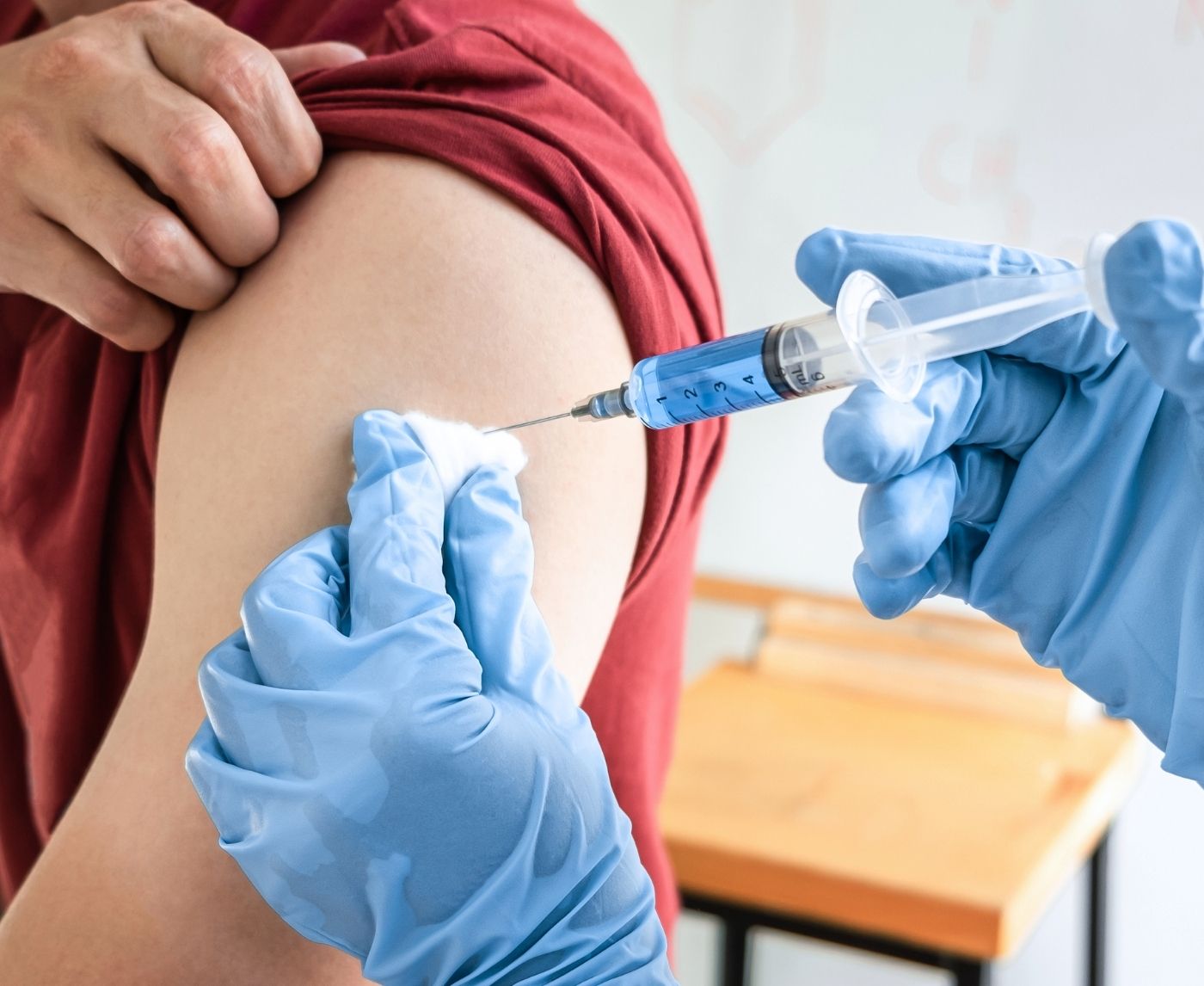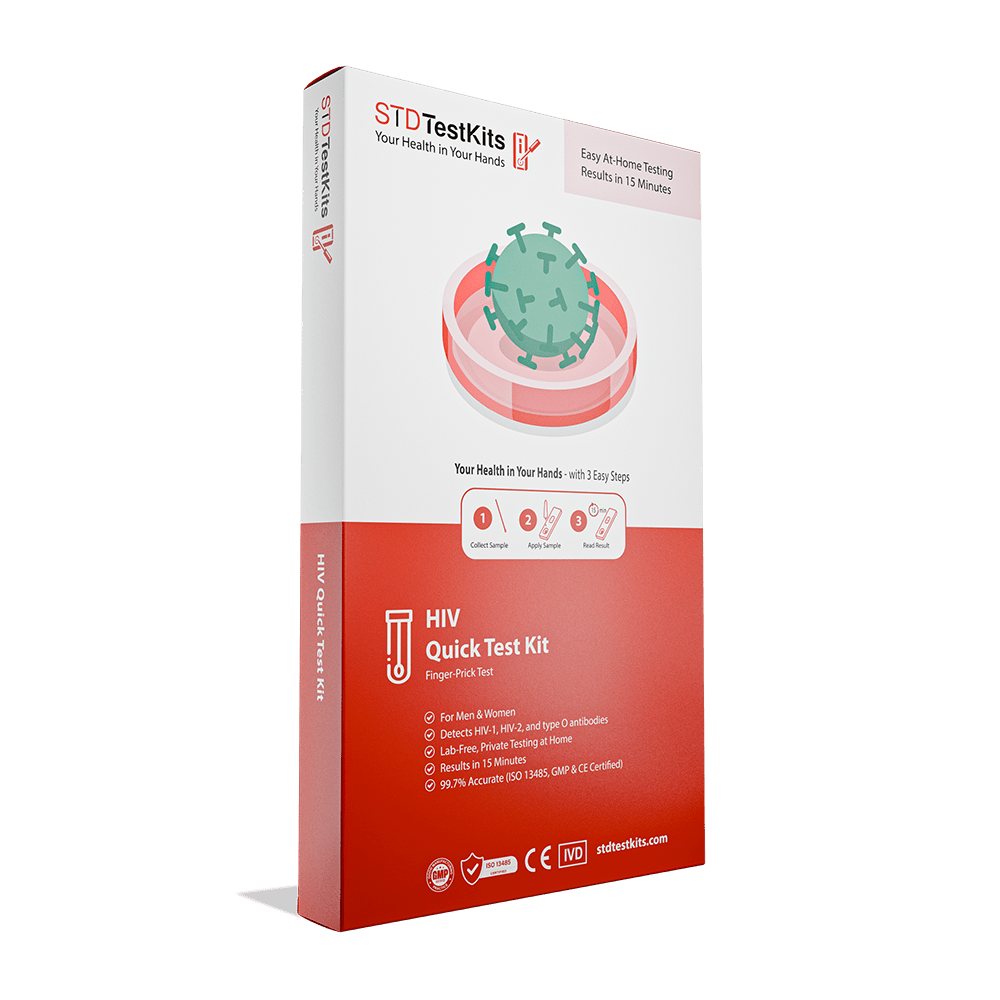Can You Get HIV from Oral Sex? What the Science Really Says
Quick Answer: The new twice-yearly injection for HIV prevention, called Apretude (cabotegravir), reduces risk of HIV infection by 96% in clinical trials. It’s more effective than daily pills for many and is taken once every 2 months after initial doses.
Why This Shot Matters (And Who It's For)
Let’s be real: taking a pill every single day to prevent something you might not even get can feel… exhausting. For some, it’s a quiet daily act of empowerment. For others, it’s a reminder of risk, of stigma, or of a healthcare system that doesn’t always feel built for them. Enter Apretude: an injectable form of PrEP that offers long-acting protection without the daily mental load.
We’re talking about a treatment built for people who live in medical deserts. For folks who travel often or can’t keep meds in shared housing. For people who’ve faced stigma in the pharmacy line or are simply burned out on pills. This shot also makes sense for those who want a set-it-and-forget-it option that matches their lifestyle or sex life rhythms. According to data from the CDC, it could be particularly impactful for young Black men who have sex with men, who face the highest risk of HIV in the U.S. but often have the least access to consistent care.
This isn’t a niche option. It’s a new tool in the HIV prevention toolbox, and the more we talk about it, the faster we can normalize it, make it accessible, and reduce new infections across the board.
How the HIV Prevention Shot Works (And Why It's So Effective)
Apretude (the brand name for cabotegravir) is a long-acting injectable medication that prevents HIV from establishing infection in the body. It works by interfering with a specific enzyme the virus needs to replicate, essentially blocking HIV at the gate. What makes it unique isn’t just its power, but its schedule: after two initial injections one month apart (and sometimes an oral lead-in), you only need a shot every two months. That’s it.
In a landmark global trial, HPTN 083 and HPTN 084, the injection was compared head-to-head with daily Truvada pills. In both cisgender men and transgender women who have sex with men, as well as in cisgender women at high risk, Apretude consistently outperformed daily oral PrEP. The numbers speak for themselves: a 66% relative reduction in HIV acquisition in one trial, and up to 96% absolute risk reduction in subgroups with high adherence.
Here’s a simplified breakdown comparing the two:
| Prevention Option | Dosing Schedule | Effectiveness | Best For |
|---|---|---|---|
| Apretude (Cabotegravir) | Injection every 2 months | Up to 96% reduction in HIV risk | Those who struggle with daily pills or access |
| Truvada/Descovy (Daily PrEP) | Oral pill every day | Around 99% effective with perfect use | Those with stable routines and pill tolerance |
Table 1: Comparison of injectable PrEP (Apretude) and daily PrEP pills based on clinical trial outcomes and real-world adherence considerations.
It’s not that pills are obsolete. It’s that people deserve choices, and for some, this one finally fits their life.

People are also reading: Not Just a Scare: Why HIV Testing After Anal Sex Could Save Your Life
What to Expect When You Get the Shot
The first time Julian got the injection, they were nervous. Not about the needle, but about everything around it, what it meant to show up for a “PrEP shot,” how the nurse would treat them, and whether they’d feel weird afterwards. “It felt like a big deal,” they said. “But it was over in five minutes. I didn’t even have time to overthink it.”
The injection is given in the gluteal muscle, yes, your butt. After the initial oral dose (optional, but sometimes recommended for tolerability), the first two shots are spaced one month apart. After that, it’s once every two months. The shot needs to be administered in a clinic by a licensed provider, which means you'll need to schedule and stick to your appointments. A missed shot can reduce your protection and potentially create resistance, so reliability matters.
Side effects? They’re real, but usually short-lived. The most common include injection site soreness, headaches, fever, fatigue, and in rare cases, gastrointestinal upset. But compared to the daily pill burden, and for many, the pill-related side effects like nausea or kidney issues, Apretude often comes with fewer long-term complaints.
Here’s how the side effect profiles tend to shake out:
| Side Effect | Injectable (Apretude) | Daily Pill (Truvada/Descovy) |
|---|---|---|
| Injection site pain | Common | Not applicable |
| Kidney impact | Rare | More common with Truvada |
| Weight gain | Reported in some users | Minimal evidence |
| GI issues (nausea, cramps) | Uncommon | More frequent |
Table 2: Common side effects reported in trials and post-market experience for injectable vs oral PrEP options.
And no, you don’t have to stop having sex right after the injection. The medication becomes active within days, and full protection is established once the schedule is stabilized. But just like with pills, there’s a bit of a ramp-up period, so make sure to follow your provider’s guidance closely after the first dose.
Can You Skip HIV Testing if You’re on the Shot?
Short answer? No. The shot protects you from acquiring HIV, but it doesn't detect it. That means HIV testing is still part of your prevention plan. In fact, testing is required before every injection to make sure you haven’t become HIV-positive since your last dose. Why? Because starting or continuing Apretude while already infected can lead to drug-resistant strains of HIV, making future treatment more complicated.
Here’s the rhythm: before each injection, you'll get a rapid or lab-based HIV test. If you're negative, the provider gives you your shot. If there's any doubt, or if the window period hasn't fully passed after a recent exposure, they may delay the injection until they’re confident you're still negative.
Let’s say you had a possible exposure two weeks ago. You show up for your scheduled Apretude injection, but your test could miss a new infection. Your provider might ask you to come back in a week or two. It's not punishment, it’s precision. Cabotegravir is potent, and it deserves to be used safely and effectively.
If you're used to mail-in STD tests or home testing kits, this might feel like a step back. But the truth is, it's a small price for long-term peace of mind, and there are ways to make HIV testing more discreet and regular. STD Rapid Test Kits offers home-based testing options that some users combine with their PrEP routine to stay extra vigilant.
Don’t think of testing as paranoia. Think of it as insurance that keeps your prevention working at full power.
What If You Miss a Shot or Want to Stop?
Real life gets in the way. You move cities. You lose insurance. You forget to reschedule an appointment. What happens then? If you miss a dose by more than a week, you may need to restart the loading phase, or temporarily switch to oral PrEP until you’re eligible again. Providers will walk you through it, but the key is: don’t ghost your medication. Stay in touch, ask questions, and make a plan.
Quinn, 26, switched from pills to Apretude after struggling to remember his daily dose. “It was great for six months, but I got laid off and couldn’t make it to my next shot,” he said. “My clinic worked with me to bridge with oral PrEP until I could restart.” This kind of flexibility matters, especially in a healthcare system where access can be interrupted.
Thinking of stopping entirely? That’s okay too, but don’t just vanish. HIV risk rebounds after a missed injection, and the drug takes weeks to fully clear from your body. During that “tail period,” it’s possible to acquire HIV if exposed, and resistance may develop. This is why providers recommend overlapping with oral PrEP or using condoms until full clearance if you’re discontinuing.
The bottom line: this isn’t a trap. It’s a tool. Use it wisely, and it works with you, not against you.

People are also reading: From Wilmington to Sussex: Delaware’s Chlamydia Hotspots
Who Has Access, and Who’s Still Being Left Out
Let’s be blunt: access to Apretude isn’t equal. In the U.S., it’s FDA-approved and recommended by the CDC for those at high risk, but insurance coverage, provider availability, and systemic bias still create massive gaps.
According to CDC data, Black Americans accounted for over 40% of new HIV diagnoses in 2022, yet made up less than 15% of those receiving PrEP of any kind. Trans and nonbinary folks? Even less. Many providers still don’t mention PrEP at all during sexual health visits, especially to women, queer patients, or anyone who doesn't fit a stereotypical “high-risk” profile.
Then there’s the issue of cost. Without insurance, Apretude can run over $3,000 per dose. Even with coverage, co-pays and administrative fees vary wildly. Medicaid coverage depends on the state, and private insurers may require prior authorization, which delays access. Fortunately, ViiV Healthcare offers financial assistance for eligible patients, and advocacy groups are working to expand federal programs that support injectable PrEP access across marginalized communities.
Here’s a snapshot of access hurdles and potential solutions:
| Barrier | Common Scenarios | Workaround or Solution |
|---|---|---|
| Lack of PrEP-aware providers | Rural clinics, conservative regions | Telehealth or LGBTQ+ clinics like Planned Parenthood |
| Cost without insurance | No coverage or high deductible plans | Manufacturer coupons, ViiV Connect assistance programs |
| Gender bias in prescribing | Women, trans people not offered PrEP | Self-advocacy scripts and specialty clinics |
| Appointment inflexibility | Work hours conflict with clinic times | Ask about mobile units or weekend shot availability |
Table 3: Common access barriers and real-world workarounds for those interested in switching to Apretude.
If you feel invisible in the conversation around HIV prevention, you’re not alone, but you’re also not without options. The more we normalize different forms of protection, the more leverage we all have to demand better care.
Real Talk: What This Means for Testing Culture
There’s a risk when we talk about “high effectiveness”: people assume they’re invincible. But no method is perfect. Apretude isn’t a license to ghost your testing schedule, it’s a way to reduce your risk dramatically while keeping your health plan intact. Think of it as a highly effective umbrella. Yes, you’ll stay dry in most storms. But you still check the weather, right?
Testing still matters. It catches other STIs like syphilis, chlamydia, and gonorrhea, which PrEP doesn't prevent. It also keeps your provider relationship strong, which is crucial for ongoing access to the shot. Some users pair their bi-monthly injections with full-panel testing at home, through services like the Combo STD Home Test Kit. It’s discreet, fast, and adds an extra layer of control over your sexual health.
Jules, 31, says she uses both: “I get the shot every two months, and I test at home every three. Not because I’m scared, but because I finally feel like I can own my health without shame.”
That’s the future we’re aiming for. Not just fewer infections, but more agency, more choice, and more conversations that center real people, not just stats.
Before You Panic, Here’s What to Do Next
If you’re overwhelmed right now, maybe reading this because you had a scare, or because you’re just tired of the pill and want another way, you’re already doing the brave thing. You’re seeking clarity. You’re refusing to sit in silence.
Here’s the takeaway: Apretude works. It’s not perfect, but it’s powerful. It’s especially helpful if daily pills don’t fit your lifestyle or if access has been a barrier. But it comes with responsibilities: regular HIV testing, scheduled appointments, and honest conversations with your provider.
If you’re ready to explore your options discreetly, this Combo STD Home Test Kit can help you start. It’s fast, private, and pairs well with any prevention method you choose.
FAQs
1. Can I finally stop taking a pill every day?
Yes, and for a lot of people, that’s the whole point. Apretude is a long-acting injection, not a daily reminder. You get the shot every two months (after a couple of starter doses), and that’s it. No pills on your nightstand. No awkward refill drama at the pharmacy. Just protection that fits your life instead of disrupting it.
2. Do I still need to test for HIV if I’m getting the shot?
100% yes. The shot prevents HIV, it doesn’t detect it. You’ll need to test before every injection to make sure you’re still negative. It’s not a punishment, it’s a safety check. Think of it like checking your tire pressure before a road trip. You want the medicine to work, not miss something silently brewing.
3. What if I miss my shot because life happened?
Life happens. You won’t get shamed, but it does matter. If you’re late, like more than 7 days late, you might need to start over or bridge with daily pills for a while. Your clinic will help, and if they don’t? Time to find one that sees you as human. This isn’t all-or-nothing, but timing is part of the deal.
4. Is it painful? Be real.
Real talk? It’s a butt shot, so yeah, you’ll probably feel it. Most people say it’s sore for a day or two, like post-leg day at the gym sore, not someone-punched-you sore. A few folks feel feverish or tired after the first dose. But compared to nausea from Truvada or daily pill fatigue? A few sore cheeks every 60 days feels like a win.
5. Can I get the shot if I’m a woman? Or trans? Or not “high risk”?
If you can get HIV, you can benefit from PrEP. Period. This shot was tested in cis women, trans folks, and gender-diverse populations. If your provider tells you it’s “not for people like you,” that’s a them problem, not a you problem. Get a second opinion. Your identity shouldn’t gatekeep your safety.
6. Will my insurance cover this? Or am I screwed?
Depends on your state and plan. Many private insurers, and some Medicaid plans, do cover Apretude, but they might require annoying paperwork (hi, prior authorization). If you’re uninsured, ViiV has an assistance program that can help. Worst case? Some people start with oral PrEP while getting their financial ducks in a row.
7. Does this mean I can stop using condoms?
That’s between you, your partners, and your risk comfort level. The shot protects against HIV, but not other stuff like syphilis, gonorrhea, or chlamydia. A lot of folks do a mix: condoms sometimes, regular STI testing, and open convos with partners. There’s no one-size-fits-all answer, but don’t confuse HIV protection with full immunity.
8. Can I still get the shot if I’ve already had HIV scare(s)?
Yes, and honestly, that makes you a great candidate. Apretude is made for people who know they’re at risk and want something easier, steadier, and more reliable. If you’ve had close calls, the shot can be a way to stop living in constant what-if mode and actually relax.
9. What happens if I stop taking the shot completely?
No shame, but please plan your exit. After your last injection, the drug lingers in your body for months, what’s called the “tail period.” During that time, you’re still vulnerable to HIV but the drug is just strong enough to mess with viral resistance if you get infected. That’s why doctors suggest overlapping with daily PrEP or condoms for a bit if you’re bowing out.
10. How do I start? Is it complicated?
Honestly? Easier than people think. Get an HIV test. Book with a provider who offers Apretude. Talk through side effects and scheduling. That’s it. Some places do a few weeks of oral cabotegravir before injecting to check tolerability, but many skip that now. If you're nervous, bring questions, and don’t let anyone rush you. You deserve time to decide if this is your thing.
You Deserve Answers, Not Assumptions
You don’t need to “look like” someone who takes PrEP. You don’t need to prove you’re at risk. You don’t owe anyone an explanation for wanting to stay HIV-negative. Whether you’re sexually active once a year or once a day, whether you’ve had scares in the past or just want peace of mind, you deserve prevention that works for your life, not someone else’s idea of it.
The twice-yearly HIV prevention shot isn’t a miracle, but it’s a major step forward. For many, it means less stress, more autonomy, and finally feeling like healthcare fits instead of fights you. If you’re ready to take that step, or even if you’re just curious, there’s no wrong time to ask questions, explore your options, and choose what works for you.
Don’t wait and wonder, get the clarity you deserve. This at-home combo test kit checks for the most common STDs discreetly and quickly.
How We Sourced This Article: We combined current guidance from leading medical organizations with peer-reviewed research and lived-experience reporting to make this guide practical, compassionate, and accurate.
Sources
1. Guidelines on Long‑Acting Injectable Cabotegravir for HIV Prevention – WHO
2. Long‑acting Injectable Cabotegravir for the Prevention of HIV Infection – NIH
3. Cabotegravir for HIV Prevention in Cisgender Men and Transgender Women – NEJM
4. Long‑Acting Cabotegravir vs TDF/FTC Oral PrEP – The Lancet HIV
5. Safety and Efficacy of Injectable Cabotegravir – Systematic Review – NIH
6. HIV.gov: Pre‑Exposure Prophylaxis (PrEP) Overview
About the Author
Dr. F. David, MD is a board-certified infectious disease specialist focused on STI prevention, diagnosis, and treatment. He blends clinical precision with a no-nonsense, sex-positive approach and is committed to expanding access for readers in both urban and off-grid settings.
Reviewed by: M. Liang, FNP-C | Last medically reviewed: September 2025
This article is meant to give you information and is not a substitute for medical advice.







